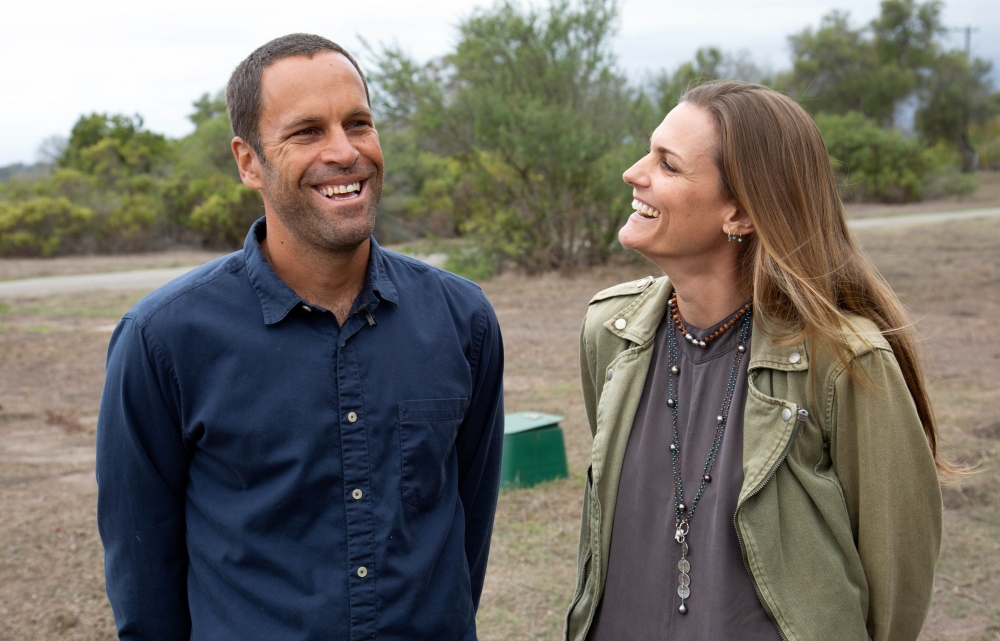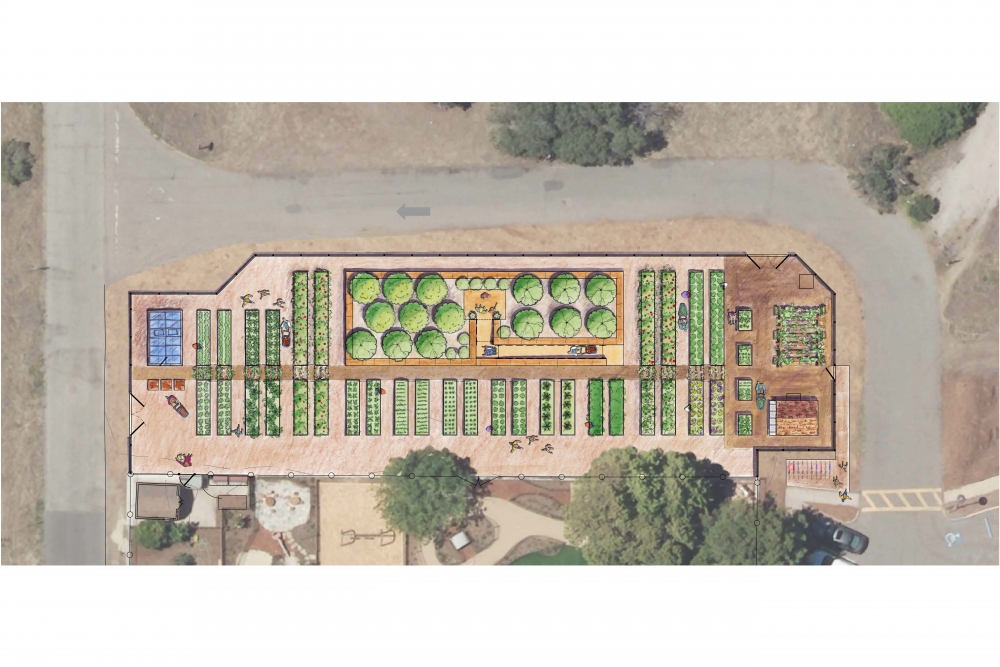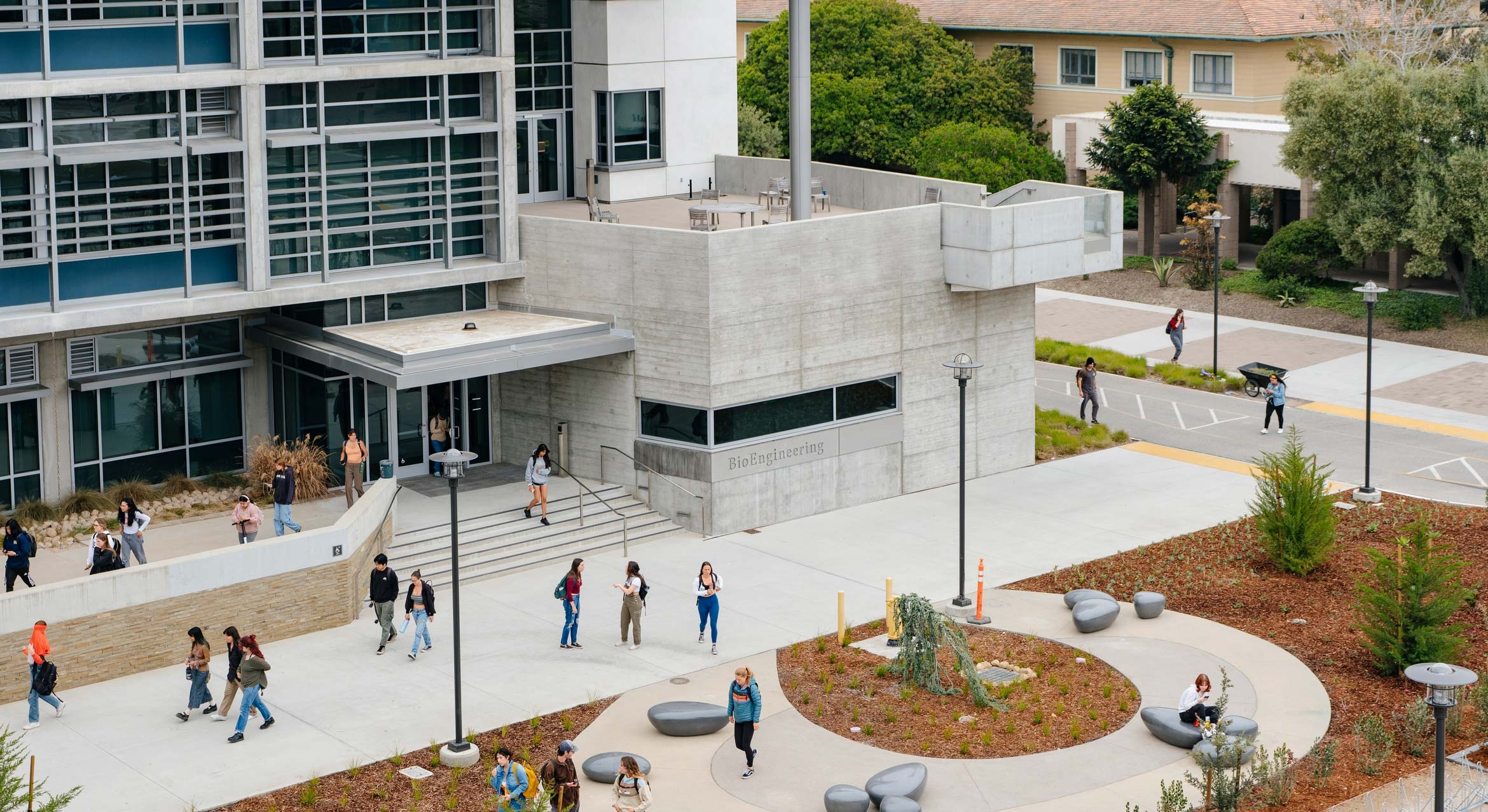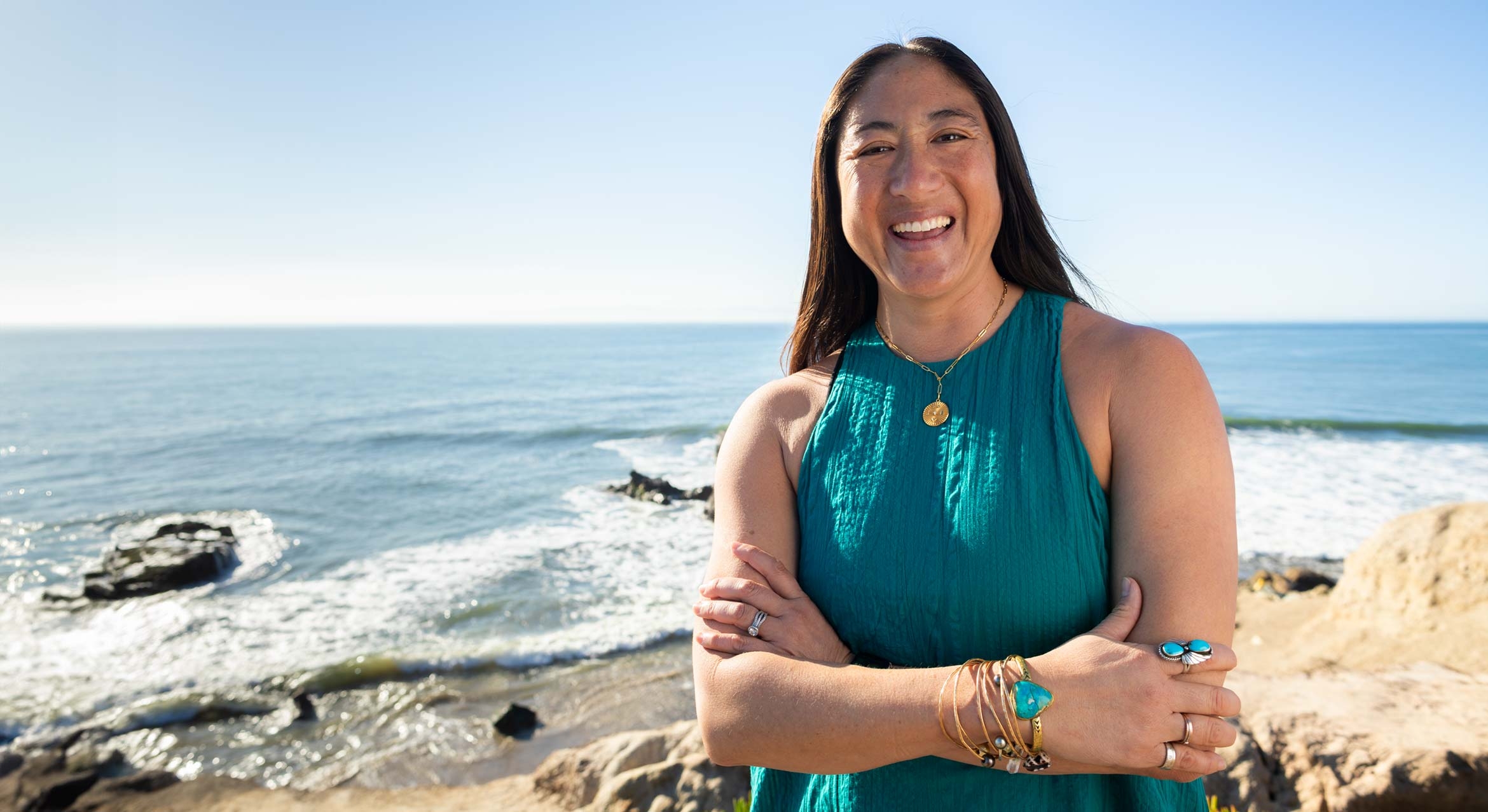Grow On, Now


Many hands working together. That’s the translation, and the spirit, of the Hawaiian word laulima.
And it was laulima that two prominent Hawai'i residents — Kim and Jack Johnson — credited for the recent achievement of a long-held dream at UC Santa Barbara, their alma mater: a student farm.
Three years after formally launching its Edible Campus program — a multifaceted effort to grow food on campus, for campus — UC Santa Barbara has broken ground on an expansive garden. The 12,000 square-foot parcel situated at West Campus will ultimately bring fresh local produce to the Associated Student Food Bank, and a host of educational opportunities to students of all ages.
“Working together we can accomplish amazing things — that’s laulima,” said Jack Johnson. “And that’s the inspiration we gain from being here at UCSB.”
The food production endeavor, a key element in UC Santa Barbara’s extensive sustainability practices, has core and committed partners in the Johnsons. Through their Johnson Ohana Foundation, they have supported Edible Campus since its inception, providing both mentorship and money.
“We wanted to do something on campus that has a lasting impact,” said Kim Johnson. “It took a lot of work to get to this point and it will take a lot more helping hands to turn it into a fruitful garden. This is just the beginning.”
“UCSB is such a special place,” Jack Johnson said of the campus where he and Kim first met, and where they both recall first connecting with food. “We’re just excited to be working with a place where we both learned so much and have been inspired so much. So many fond memories. And this was the way that made the most sense for us to be cooperating and working with UCSB.”
The food-focused collaboration at UC Santa Barbara aligns perfectly with Johnsons’ farm-to-school programs in Hawaii, where their Kōkua Hawaiʻi Foundation operates multiple gardens and trains both teachers and kids in gardening, composting, nutrition and waste reduction.
“For the last 12 years we’ve been running school gardens in Hawaii, so it seemed like a natural fit for us to help UCSB get their first student farm off the ground,” Kim Johnson said. “We were excited to hear about the UC Global Food Initiative when that launched four years ago, so we reached out to hear what UCSB is doing in that space. Then Edible Campus got started, first with the fruit trees and now the farm. We’re hoping this will lead to a lot more.”
Once all three Edible Campus installations — the orange trees, the tower garden and now, the farm — are in full production mode, UCSB hopes to double, from 25,000 pounds to 50,000 pounds, the amount of fresh produce distributed annually by the A.S. Food Bank.
The farm’s design calls for raised beds of row crops as well as multiple companion plantings such as corn, beans and squash. A multilayer permaculture garden of trees tall and short, bushes and low-lying plants — all integrated together — will reflect the production potential of a forest-style structure. A composting demonstration area will include both worm composting and hot composting units. On top of all that, a dedicated, flexible space for pre-K-12 and college-level education also is in the plans.
UCSB’s Department of Public Worms (DPW), a composting collective run by Associated Students, will manage the farm day-to-day, but students, staff, faculty and even members of the surrounding community will be regularly welcomed for planting parties, harvesting events and much more.
“It’s been almost six years in the making to get here, and it’s just a dream come true for so many students, past and present,” said Jessie Schmitt, who oversees DPW as recycling and compost program manager for Associated Students. “There will be so many benefits once we have the farm up and growing. We’ll be providing local, organic produce to the A.S. Food Bank and other food pantries on campus — this will be a great resource to them. We will also provide educational opportunities for students and opportunities for the community to come together to grow food and to know where their food is coming from.”
That is sweet music to the Johnsons, for whom the connection to food is as crucial as the food itself.
“A lot of time people feel disconnected from that word — environmentalism,” said Jack Johnson, “but food and eating is one thing we all do every day.”
“Food is so much,” added Kim Johnson. “It’s not just nourishing our bodies. It’s our culture, it has so many layers. People identify so closely with food. Food is a community builder. And there is so much you can learn from growing food. I went to the UCSB Teacher Education Program, and seeing the connections made in a garden — science, math, social studies, any subject can be taught in a garden — there are so many opportunities for people to learn.”



